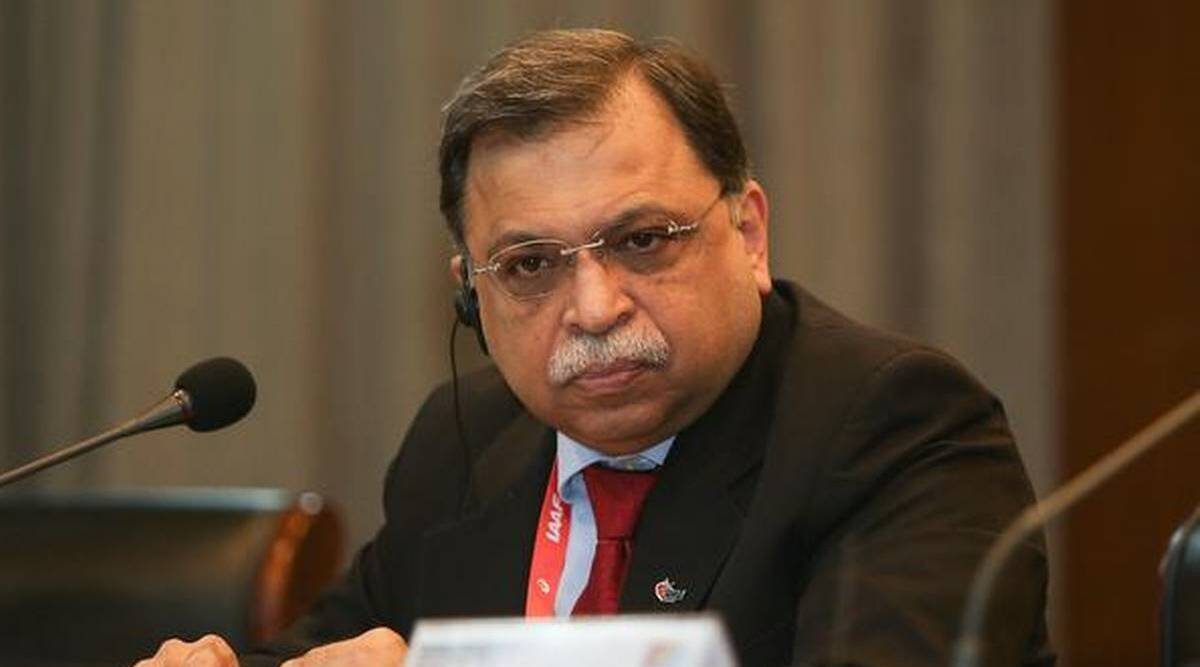“People ask what more can we do to prevent doping. I think everyone will become responsible, including the coaches, if we criminalise doping,” Sumariwalla added.
Thank you for reading this post, don't forget to subscribe!Shared News: May 7, 2022 7:06:58 am
The AFI president expressed his views two days after the Athletics Integrity Unit (AIU), an independent body set up with an aim to weed out dope cheats, said star discus thrower Kamalpreet Singh had been provisionally suspended for testing positive for Stanozolol, a banned anabolic steroid. (File)
Criminalisation of doping with jail terms for coaches for supplying banned performance-enhancing substances and for senior athletes who use them is the strongest deterrent for drug cheats in sports, according to Athletics Federation of India (AFI) president Adille Sumariwalla.
“I have been pushing to give punishment for coaches in the anti-doping bill. My original idea for the bill was criminalisation of doping. The current anti-doping bill (2021) is a watered down version. But, maybe, they are right for now. We are not yet ready for that (criminalisation). But finally criminalisation has to happen. It is a matter of five years,” Sumariwalla said.
The AFI president expressed his views two days after the Athletics Integrity Unit (AIU), an independent body set up with an aim to weed out dope cheats, said star discus thrower Kamalpreet Singh had been provisionally suspended for testing positive for Stanozolol, a banned anabolic steroid. Kamalpreet was pencilled in as a medal contender at the Commonwealth Games, the Asian Games (postponed on Friday) and the World Championships but now faces up to a four year ban.
“People ask what more can we do to prevent doping. I think everyone will become responsible, including the coaches, if we criminalise doping,” Sumariwalla added.
The Anti-Doping Bill 2021, which was first introduced in the parliament last year, intends to give added teeth to the National Anti-Doping Agency (NADA) by allowing its authorised officials to enter any place at a reasonable time to check if an anti-doping rule violation is being committed. The bill also allows an officer to search a premises and seize ‘equipment’, ‘device’ and ‘substance’ as evidence. The NADA does not have the power to conduct raids and for search and seizure currently.
Additionally, the bill aims to establish one or more National Dope Testing Laboratories in the country accredited to the World Anti-Doping Agency (WADA).
Youth Affairs and Sports Minister Anurag Thakur introduced the National Anti-Doping Bill in parliament in December last year. In March, a parliamentary panel endorsed it but made recommendations related to protecting the rights of athletes and their privacy.
According to Sumariwalla, who is also a member of the World Athletics Council, those guilty of doping in sports should be seen as drug peddlers. The menace of doping among junior athletes, he said, can be curbed only if coaches, who in a number of cases supply the banned substances, are put behind bars.
“If a peddler gives cocaine to a minor, will the peddler not go to jail? This is similar. If an athlete is a minor and the coach gives dope, isn’t it a criminal act? Doping in juniors is largely because of coaches. If an athlete is a senior and dope is found on the athlete then there should be a jail term. If it is found in their bag, for example. These drugs need a prescription. An athlete has to prove that he or she genuinely needed the drug for a medical reason. Then an athlete should have applied for a TUE (Therapeutic use exemption),” Sumariwalla added.
Athletes can apply for a TUE, which allows them to take a medication which contains substances on the list of prohibited drugs, for treatment of an illness or a condition. A TUE is issued for a specific period.
Germany is one of the countries where an anti-doping law came into force in 2015. Athletes who test positive for performance enhancing drugs or are found in possession of them can face prison terms upto five years while those who are suppliers can be put behind bars for 10 years.
“We had a conference a couple of years ago, I had brought down the president of the German athletics association and also a member of parliament in charge of sports who enacted the bill in Germany. They met the then sports minister, the sports secretary… In India we have to be ready for it. If you are not ready for it, the law makes no sense. It will take a few years for the whole machinery to be ready for it, including the law enforcement agencies. Also, our athletes need to be educated about the repercussions.”




